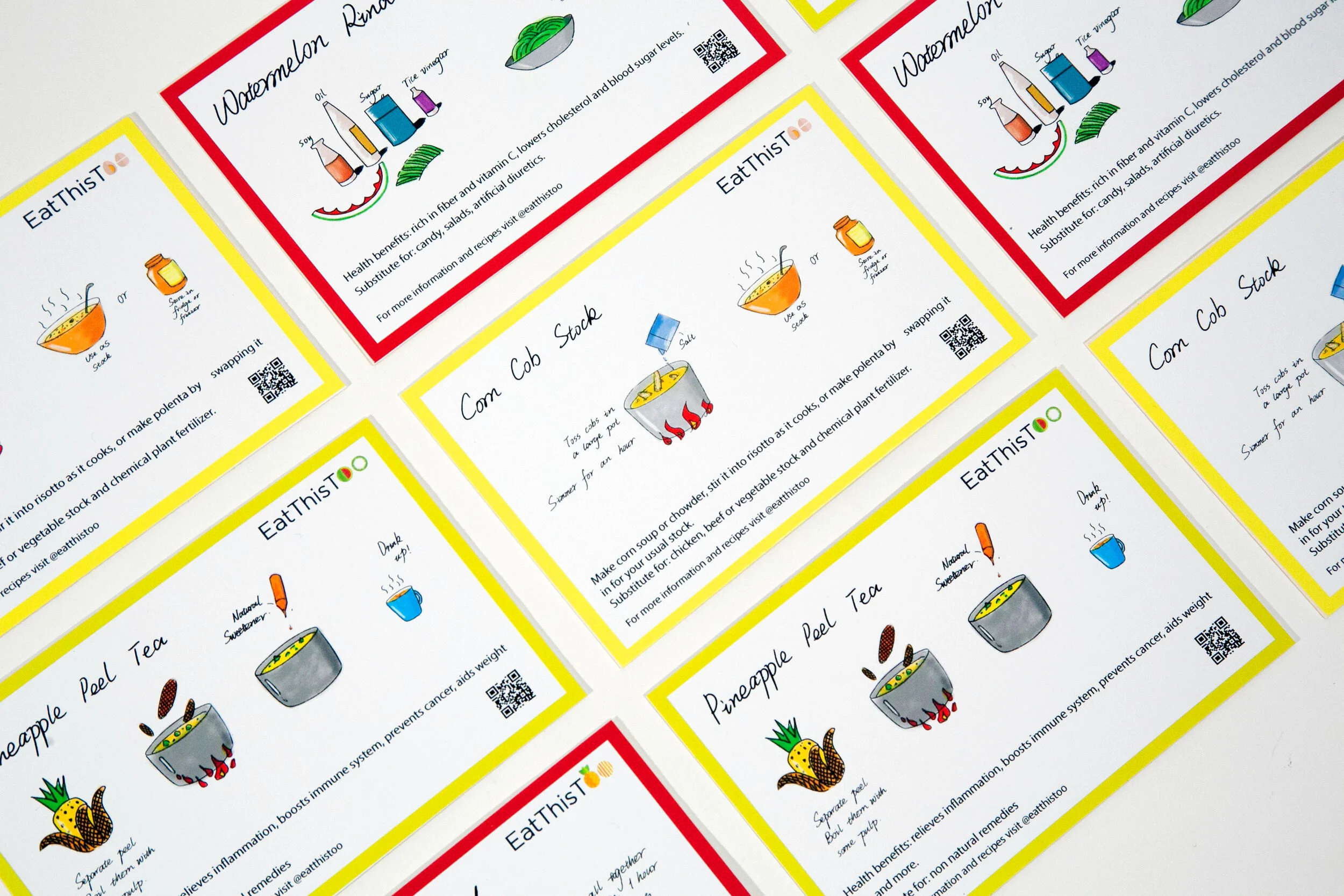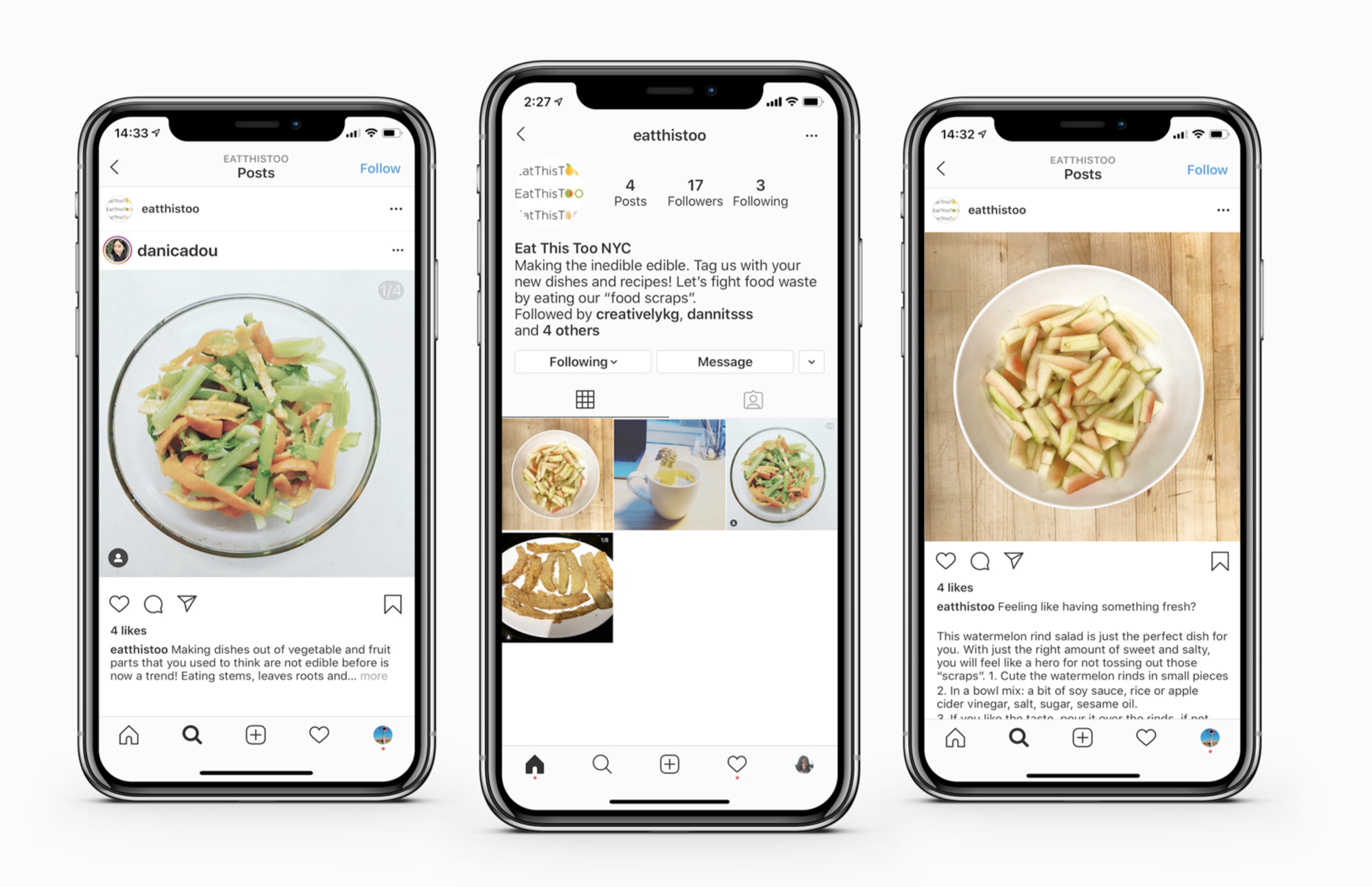EatThisToo: Eliminate Food Waste Through the Power of Design
EatThisToo is a campaign and series of design interventions that tackle the topic of food waste. Designed by first-year students Joey Hang, Danica Dou, and Danna Krouham, the project aims to reeducate the public about edible "food waste"—scraps surprisingly loaded with health benefits. The team chose to focus on behavior change and designed a suite of EatThisToo recipe cards, compost bags, and bands for distribution at farmers' markets and grocery stores.
The team said they decided to focus on food waste at the consumer level because, through their research, they found that "39% of food wasted in North America is caused within the consumption phase (referring to shopping for household consumption). Moreover, global food loss waste is responsible for 8-10% of total greenhouse gas emissions as of 2016." They initially hypothesized that this shocking amount of household waste might be due to consumers not knowing how to buy, store, prepare, and eat different types of foods—and especially “the parts of fruits and vegetables that most people thing are garbage.” The project began with two main research objectives: First, to identify the factors that lead consumers to waste the food they have at home. Second, to learn about consumers' relationship with food and what is important to them.
39% of food wasted in North America is caused within the consumption phase. Most people don’t realize that you can cook “the other parts” of fruits and vegetables to create delicious dishes.
“Food 'waste' is immensely rich in nutrients
and has positive health benefits for our bodies.” — Claire Hartten
The EatThisToo team interviewed six subject matter experts (as well as a group of non-experts) to gain insight into their topic. Claire Hartten, Co-Founder of Hungry NY and Integrative Sitopian Projects, and a faculty member at MFA Products of Design told them, "Food 'waste' is immensely rich in nutrients and has positive health benefits for our bodies. We should all learn to interact with and use the entire food—you can cook and store them in many simple ways."
Ariel Ardura, a Clinical Fellow at Harvard Law’s Food Law and Policy Clinic, shared that, "Reducing food waste and implementing new policies and programs around reducing food waste can create 15 thousand jobs, generate over a billion in annual business profits, and it can provide 10 billion economic values every year to the country."
The final project focuses on behavior change by utilizing a multidisciplinary approach. The EatThisToo recipe cards, compost bags, and bands educate consumers on how to use the entire food product—typically by cooking or preserving—in a fun and nonjudgemental way. The ultimate goal? To reduce organic waste, receive health benefits, and even save money.










